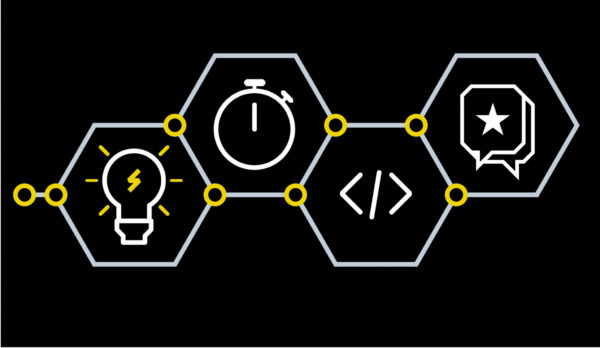

Our approach to Maths
When considering an engineering degree, you might assume you need to have achieved an A-level or equivalent in maths. In most cases, you’d be right. However, to apply for our Global Design Engineering degree at TEDI-London, this isn’t the case.
Let’s be clear; we’re not trying to say that engineers don’t need maths. Maths is a key skill and thought process that underpins a person’s ability to solve engineering design problems. Without this toolkit, engineers wouldn’t be able to do their jobs!
But, we believe that students without an A-Level or BTEC qualification in Maths should not have to miss out on studying engineering at degree level. Let’s be clear we are not saying maths isn’t important to study engineering – it is! However, we don’t see a Maths Level 3 qualification as essential to studying with us and becoming an incredible future engineer. That is one of the reasons why we are different. Alongside all the other engineering skills that you’ll develop, we’ll support you throughout your maths journey with us, and it’ll become yet another tool to help you change the world for the better.
Removing barriers to engineering
TEDI-London stems from the vision of our three founding partners – Arizona State University, King’s College London and UNSW Sydney – to bring more diverse people into engineering. This refers to people of different genders, ethnic and educational backgrounds, but also to people with different skillsets, experiences and perspectives.
There are a few ways in which requiring applicants to have a high-level maths qualification presents a barrier to this mission:
Discovering engineering later
As engineering isn’t generally a standalone subject that is delivered in the earlier stages of secondary education, young people may not be aware of what studying engineering looks like at this point in their lives and, most crucially, ahead of making subject choices. For some, maths might have been a strong suit without making the list of top three or four subjects. Finding out ‘too late’ to continue with maths shouldn’t act as a barrier for potential future engineers.
International qualifications
Some international maths qualifications aren’t considered to be appropriate equivalents to UK qualifications, like A-levels. This leads to international applicants being rejected from studying engineering in the UK, despite having studied maths to a high level. Our Maths Refresher course allows us to welcome international students, in the knowledge that their maths capability meets the requirements for our course.
Retraining as an engineer
Mature applicants may have decided to retrain as engineers, after having already progressed within a completely different career path. In some cases, they may have taken a maths qualification already, but lack confidence if their achievement wasn’t recent. During their previous career, they would have developed transferrable skills that, combined with the Maths Refresher course, would make them a great candidate for TEDI-London.
More about us


BEng/MEng Global Design Engineering
